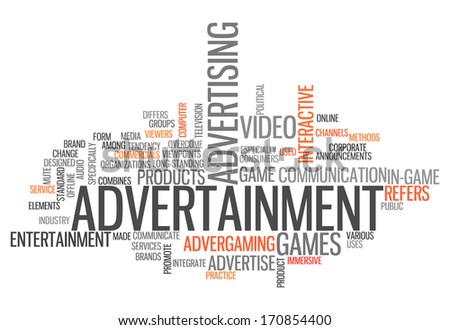Brands and bands – product placement in pop is a betrayal of fans’ loyalty

In news that is unlikely to come as a surprise to anyone with ears, a study from the University of Colorado, Denver suggests that pop music has become more materialistic since the turn of the century.
Music business professor Storm Gloor examined the top 30 Billboard songs each year from 1960 to 2013, and found a steep increase in product placement since 2000 – with more than half of all product namechecks in song lyrics appearing between 2000 and 2010. With mildly excruciating academic flourish, Gloor calls this trend “advertainment”.
It is no shock that the music industry exists to make money and big stars do deals to keep this capitalist machine ticking over. It’s there in a competition stand sponsored by footwear brand Keds at a Taylor Swift arena show in the Brit Awards’ PRs insisting journalists include @MasterCard in tweets about the 2014 ceremony in Drake showing off his Apple Watch on Instagram for 450k likes, in the kind of soft drink chosen to sit on the desk of TV talent show judges, and in the Wireless festival being renamed the New Look Wireless festival for 2015. The corporate horse hasn’t just bolted. It’s galloped across the border and is frolicking freely in the waves, trying not to get its solid-gold saddle wet.
Clearly there is little money to be made in selling records these days, and touring is expensive, so why begrudge artists (and their labels, who love money) new avenues by which to make some extra cash? I have never felt particularly upset by hearing a song I like on a TV advert, especially when I know it’s by an act who is not filling stadiums on a nightly basis. It makes perfect sense to me that the bands who are in a position to turn down ad money are already huge enough to thrive without it. I don’t think it makes Coldplay or Radiohead, for example, more principled or more authentic. It just means they’re more successful.
That said, there’s one element of music as a lifestyle brand that I find it difficult to get on board with, and that is a branded lyrical namedrop. I don’t mean hip-hop and rap, which has a far more complex relationship between brands and aspiration – Zadie Smith explained it perfectly in a profile of Jay-Z for the New York Times in 2012: “Asking why rappers always talk about their stuff is like asking why Milton is forever listing the attributes of heavenly armies. Because boasting is a formal condition of the epic form. And those taught that they deserve nothing rightly enjoy it when they succeed in terms the culture understands.”
I’m talking about those clunking references that have clearly been sold to the brand most willing to fund an expensive video for the next single, so long as it features plenty of close-up shots of said brand’s product. It makes me think of the unbearably sad story of the man who flogged his skin to porn sites and had their URLs tattooed on his face. He is in the process of getting them removed.
I have my theories about which songs these might be, though the deals are clearly not made public, so it is difficult to call them out. But the problem is not whether they’ve been paid to push a brand or not it’s that lines about luxury cars or soft drinks make me, the fan, think about whether they’ve been paid to push a brand or not. In 2012, the New Yorker ran an excellent piece by John Seabrook called The Song Machine, which went behind the scenes with Stargate, then the biggest producers in pop. It was brilliant and detailed, and I wish I had never read it, because it pulled back the curtain and showed the unflattering bare bones of the process. I often think of the songwriter Ester Dean creating lyrics by pulling up sayings she’d read in magazines or seen on television on her Blackberry. “Some phrases were categorized under headings like ‘Sex and the City’, ‘interjections’, and ‘British slang’,” wrote Seabrook, as the magic crumbled.
It’s a willfully naive transaction, yes, but it’s like going to the cinema to watch a massive blockbuster full of explosions and expensive scenery. I know what I’m paying for when I buy my ticket. But if one of the actors suddenly makes a hard-on-the-ear reference to the shoes they’re wearing, I stop being involved in the story, and start to think about the sound stage, and the crew, and the editing, and the angle of the shots.
Of course most entertainment is a business, particularly at its biggest, most wide-reaching levels. But surely the deal between entertainer and audience is that there is an effort to maintain the facade, and barefaced branding takes that away.
Article Source: http://www.theguardian.com/commentisfree/2015/jun/08/brands-bands-pop-music-product-placement
Image Source: http://thumb1.shutterstock.com/display_pic_with_logo/1474997/170854400/stock-photo-word-cloud-advertainment-170854400.jpg
VOCABULARY WORDS:
1. Materialistic (adj.) ~ excessively concerned with material possessions
2. Product placement (n.) ~ a practice in which manufacturers gain exposure for their products for them to be featured in movies or TV programs
3. Excruciating (adj.) ~ intensely painful
4. Frolic (v.) ~ amuse oneself
5. Begrudge (v.) ~ give reluctantly or resentfully
6. Call out (n.) ~ to challenge
7. Naïve (adj.) ~ showing lack of experience, wisdom, or judgment
8. Façade (n.) ~ an outward appearance that is maintained to conceal a less pleasant reality
QUESTIONS FOR DICUSSION:
1. Which is more important for you, the melody of a song or the lyrics? Why?
2. Do you think that product placement on songs damages meaning of the song and the credibility of the artist? Why?
3. Have you noticed this trend in your country? If yes, give examples.